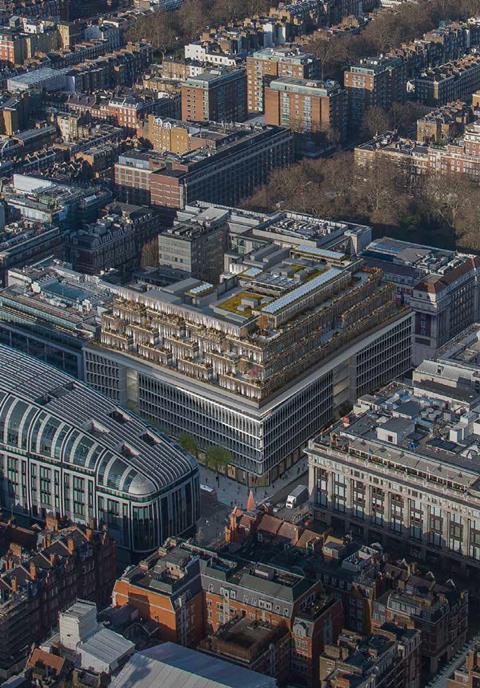Shock move follows last month’s appeal by retailer against last year’s landmark ruling
The High Court has quashed Michael Gove’s refusal of Marks & Spencer’s plans to redevelop its flagship Oxford Steet store.
The shock decision comes after a two-day appeal launched by the retailer to challenge last year’s ruling, which has been seen as a landmark case for demolish and rebuild projects.
M&S operations director Sacha Berendji said the court had agreed with five out of six counts brought forward in a decision which he said “couldn’t be clearer”.

“The result has been a long, unnecessary and costly delay to the only retail-led regeneration on Oxford Street which would deliver one of London’s greenest buildings, create thousands of new jobs and rejuvenate the capital’s premier shopping district,” he said.
“The Secretary of State now has the power to unlock the wide-ranging benefits of this significant investment and send a clear message to UK and global business that the government supports sustainable growth and the regeneration of our towns and cities.”
The proposals, designed by Pilbrow & Partners, would replace three buildings on the site including the 1930s Orchard House with a 10-storey retail and office scheme.
The scheme was rejected by Gove last year on the grounds of its heritage impact on nearby buildings, including the Selfridges department store, and over the carbon impact of rebuilding the site instead of refurbishing the existing buildings.
The decision was celebrated by sustainability campaigners including Save Britain’s Heritage, which led the case against the plans at the public inquiry in 2022, but criticised by retail groups.
Berendji said last month that the ruling had made it “impossible” for developers to interpret planning policy and could be a “disaster” for the transition to net zero.
New West End Company chief executive Dee Corsi, said the High Court’s decision to quash Gove’s ruling was a “just result for Marks & Spencer, whose proposed development is a key part of Oxford Street’s and the West End’s future growth story”.
“We are hopeful the successful appeal will now lead to enhanced clarity in the planning system for all developers to benefit from, whether they are pursuing a retrofit or a redevelopment,” Corsi added.
“We like, Marks & Spencer, are in full support of a planning system which prioritises sustainable retrofits, where they are both commercially viable and have a clear environmental pay-off over the long-term.
“This added clarity can only be positive for our city centres – from flagship retail and leisure destinations, like Oxford Street, to local high streets – and would drive growth and investment within the U.K.’s property sector.
“The landmark decision to move forward on Marks & Spencer’s flagship redevelopment plans sends a positive signal to other investors that Oxford Street and the West End is a world-leading destination to do business.”
James Souter, a partner at law firm Charles Russell Speechlys, said: “[The decision] could give developers greater confidence in bringing forwards contemporary new-build schemes, even where the possibility of retrofitting existing structures is theoretically possible.
“However, this does not automatically mean that planning permission will be granted – Gove will have to redetermine the appeal and could in theory still refuse planning permission.”
Gove’s decision had received backing from several high profile figures in the built environment, including London Eye designer Julia Barfield and Steve Tompkins, Haworth Tompkins founder and co-founder of Architects Declare.
M&S, which has occupied Orchard House and two attached buildings for nearly a century, had received approval from Westminster council in 2021 for the redevelopment.
The plans were later backed by London mayor Sadiq Khan, but were called in by Gove in 2022.




























1 Readers' comment